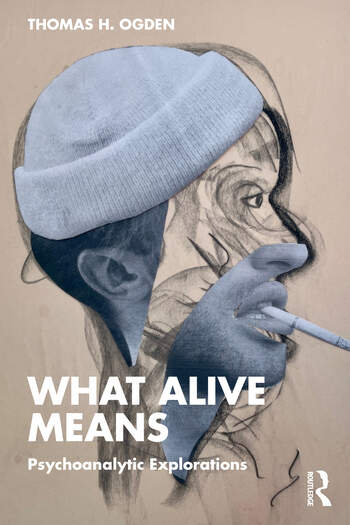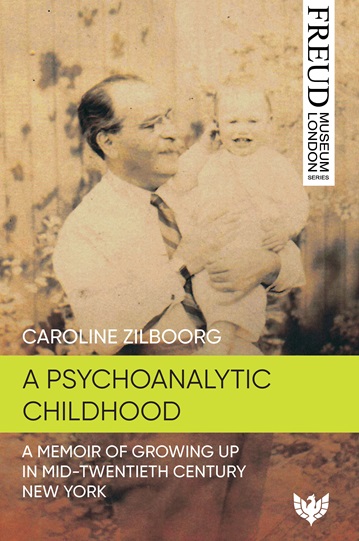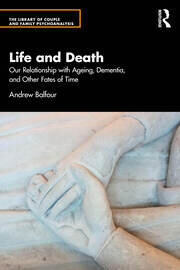Working with Survivor Siblings in Psychoanalysis: Ability and Disability in Clinical Process
Part of Relational Perspectives series - more in this series

Book Details
- Publisher : Routledge
- Published : April 2021
- Cover : Paperback
- Pages : 168
- Category :
Psychoanalysis - Catalogue No : 95559
- ISBN 13 : 9780367645762
- ISBN 10 : 9780367645
There are currently no reviews
Be the first to review
Working with Survivor Siblings in Psychoanalysis: Ability and Disability in Clinical Process explores a previously neglected area in the field of psychoanalysis, addressing undertheorized concepts on siblings, disabilities and psychic survivorship, and broadening our conceptualization of the enduring effects of lateral relations on human development.
What happens to a person's sense of self both personally and professionally when they grow up alongside a severely disabled sibling? Through a series of qualitative interviews held between the author and a sample of psychoanalysts, this book examines both the unconscious experience and the interpersonal field of survivor siblings. Through a trauma-informed contemporary psychoanalytic lens, Dobrich combines data analysis, theory-building, memoir, and clinical storytelling to explore and explicate the impact of lateral survivorship on the clinical moment, making room for a contemporary and nuanced appreciation of siblings in psychoanalysis.
Working with Survivor Siblings in Psychoanalysis: Ability and Disability in Clinical Process, will be of immense interest and value to psychoanalysts and other mental health professionals, and for all therapists who work with and treat patients that are themselves survivor siblings. Uniquely integrating both academic and memoir writing, this book will also engage those building theory around the implications of the analyst's subjectivity on clinical processes.
Reviews and Endorsements
With a soulful, fierce intellect and unflinching honesty, Johanna Dobrich brings her reader into an intimate and keenly observed examination of the ways in which her experience as the sibling of a severely disabled brother has shaped both her psychic life and analytic understanding. In doing so, she creates a larger portal for considering how minds respond to developmental traumas that go unseen, unacknowledged and unformulated. This impressive book joins memoir and interview material with a rigorous engagement of contemporary relational thinking. The result is a richly textured tapestry that marries experience with theory to produce an inspiring clinical wisdom that demonstrates how healing the other and healing oneself is a false distinction. Whether or not you are a survivor sibling or even a sibling, you will find yourself in these pages and know yourself and analytic theory all the better for it. - Martin Stephen Frommer, Ph.D. Faculty, Stephen Mitchell Relational Study Center Associate Editor, Psychoanalytic Dialogues.
This long-overdue book belongs in the library of all psychoanalytic therapists. It is a significant contribution to relational scholarship. It is also a gift to the many therapists who grew up alongside a damaged brother or sister, chose their profession partly because of their struggles and achievements as a sibling, and yet have never been fully able to tell their complex stories - partly because psychoanalysis itself lacked the space for such narratives. Dobrich has mined her own experience as a "survivor sibling" in a ground-breaking qualitative study. Her voice is intimate and compassionate, her interviews with colleagues of comparable backgrounds are riveting, and the illumination she offers to readers of any sibling background is profound. - Nancy McWilliams, PhD, ABPP, Rutgers Graduate School of Applied & Professional Psychology.
In Johanna Dobrich's Survivor Siblings in Psychoanalysis: Ability and Disability in Clinical Process, we have a major and long-awaited new contribution that fills a tremendous gap in the fields of psychoanalysis. Lacking in all these different traditions is a sustained, coherent, and comprehensive account of what happens to a human subject, personally, relationally, and professionally, when she lives alongside and survives a disabled sibling. Beyond sublimation as de-instinctualization, what is her call when she herself becomes a Relational psychoanalyst? Dobrich provides a multitude of rich naive descriptions from her research that are themselves a platform for thinking about difficulties in mentalization, microtraumatic attachments, identifications, and uncanny reactivations of maladaptive attachments across generations that a patient can resubjectivize in a clinical relationship. This book is timely, supremely relevant and a pleasure to read. - Maurice Apprey, Professor of Psychiatry, Member of the Academy of Distinguished Educators, University of Virginia School of Medicine, is a training and supervising analyst of the Contemporary Freudian Society.
About the Author(s)
Johanna Dobrich is a licensed clinical social worker and psychoanalyst in private practice in New York City specializing in the treatment of dissociative disorders, trauma, and loss/bereavement. She teaches postgraduate courses and supervises those in advanced training at the Psychoanalytic Psychotherapy Study Center (PPSC), the Institute for Contemporary Psychotherapy (ICP) and the National Institute for the Psychotherapies in New York City.
Customer Reviews
Our customers have not yet reviewed this title. Be the first add your own review for this title.
You may also like
A Psychoanalytic Childhood: A Memoir of Growing up in Mid-Twentieth-Century New...
Caroline Zilboorg
Price £22.49
save £2.50
Life and Death: Our Relationship with Ageing, Dementia, and Other Fates of Time
Andrew Balfour
Price £24.99







